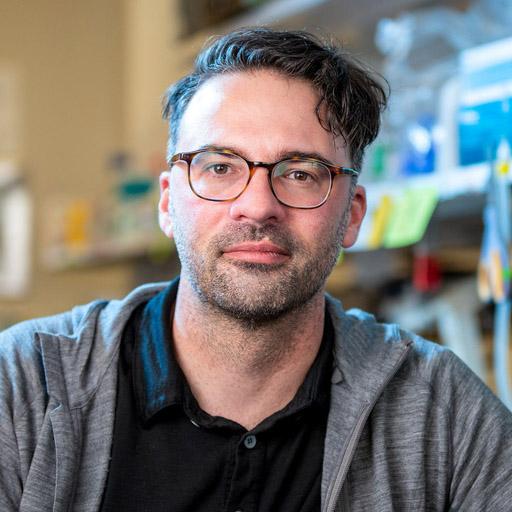
©Concordia University, photo by Lisa Graves
Dr. Christopher L Brett, PhD
- Professor, Biology
- Co-Director, Centre for Microscopy at Concordia
- Concordia University Research Chair in Applied Cell Science
Are you the profile owner?
Sign in to editResearch areas: Fundamental lysosome biology and its role in aging; Engineered extracellular vesicles for therapeutic applications
Contact information
Website:
Biography
Education
PhD (Johns Hopkins University)
PDF (University of Washington)
Awards
University Research Fellow, 2019
Dean's Award for Excellence in Scholarship, 2019
Distinguished Alumnus Lecture, Johns Hopkins University (Baltimore, USA), 2019
Canada Research Chair Tier 2, 2011-2016
Research interests
Cell biology, synthetic biology, microscopy, lysosomes, extracellular vesicles, membrane trafficking, membrane fusion, nutrient transport, aging, cancer, Alzheimer's disease
*I am currently recruiting graduate (MSc, PhD) and undergrad (BSc Honours thesis, MITACS, USRA) students.
I am a cell physiologist and my research lab uses genetics, biochemistry, advanced microscopy and synthetic biology to study: (1) fundamental lysosome biology in health and disease, and (2) extracellular vesicles as novel therapeutics.
Whether they know it or not, everyone recycles. This is because every one of the billions of cells that make up you and I constantly recycle biomaterials using specialized tiny organelles called lysosomes. Lysosomes are an essential source of nutrients for cells and breakdown toxic biomaterials that accumulate as cells age. My lab uses baker's yeast (S. cerevisiae) and its vacuolar lysosome as models to study the molecular mechanisms underlying fundamental lysosome biology and how they promote longevity or contribute to age-related diseases.
Extracellular vesicles are tiny packages shared by all eukaryotic cells (from yeast to human) that mediate intercellular communication underlying diverse physiology, from immune responses to tissue development, suggesting they have enormous therapeutic potential. My group is using baker's yeast as a platform to engineer humanized yeast extracellular vesicles to hijack these processes with the aim of developing new therapeutic applications.
Publications
Selected publications
Logan CJ, Staton CC, Oliver JT, Bouffard J, Kazmirchuk TDD, Magi M & Brett CL (2024) Thermotolerance in S. cerevisie as a model to study extracellular vesicle biology. Journal of Extracellular Vesicles 13: e12431.
McNally EM & Brett CL (2018) The intralumenal fragment pathway mediates ESCRT-independent surface transporter down-regulation. Nature Communications. 9: 5358.
Karim MA, McNally EM, Samyn DR, Mattie S & Brett CL (2018) Rab-effector-kinase interplay regulates intralumenal fragment formation during lysosome fusion. Developmental Cell. 47: 80-97.
Karim MA & Brett CL (2018) The Na(K)/H exchanger Nhx1 controls multi vesicular body-vacuolar lysosome fusion. Molecular Biology of the Cell. 29:317-25.
McNally EK, Karim MA & Brett CL (2017) Selective lysosomal transporter degradation by organelle membrane fusion. Developmental Cell. 40: 151-67.
Mattie S, McNally EK, Karim MA, Vali H & Brett CL. (2017) How and why intralumenal fragments form during vacuolar lysosome fusion. Molecular Biology of the Cell. 28: 309-21.
Media
"Discover how Synthetic Biology is reshaping our world at 4th SPACE" Concordia NOW (2020)
"Concordia celebrates the exceptional research achievements of 9 faculty members" Concordia NOW (2019)
Research activities
Funding Sources
CIHR, NSERC, FRQ-NT, CFI, CRC, MITACS
Teaching activities
Courses
Cellular Neuroscience (BIOL 474/632E)
Comparative Animal Physiology (BIOL 382)

